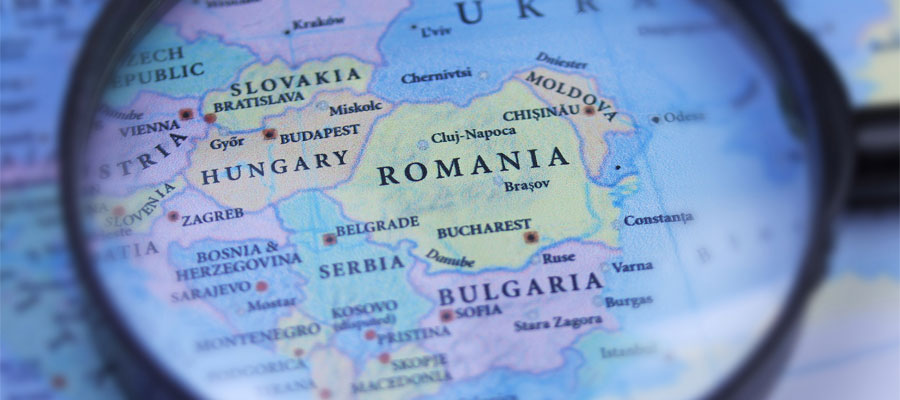Challenges in clinical research in Central and Eastern Europe – how can EORTC help?
2 May 2019
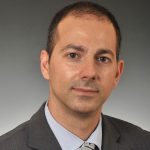 Traditionally, clinical research has been a luxury activity for clinical oncologists in Central and Eastern Europe, says Vassilis Golfinopoulos, EORTC HQ Director. This means that everyone loses out – doctors, patients, and health services.
Traditionally, clinical research has been a luxury activity for clinical oncologists in Central and Eastern Europe, says Vassilis Golfinopoulos, EORTC HQ Director. This means that everyone loses out – doctors, patients, and health services.
A paper published recently in the European Journal of Cancer1 by Begum et al sets out to map the problem of cancer research in Central and Eastern Europe (CEE), and finds a troubling picture. In order to improve cancer outcomes, CEE countries need to greatly improve their research capacities, say the authors. “Not only does this lead to better patient outcomes through better general cancer knowledge and more rigorous adherence to clinical guidelines, but also provides evidence to inform national cancer control planning.”
Everyone agrees that there are major problems to be overcome. “The main barriers to conducting non-commercial trials are the huge administrative burden involved, which in turn leads to an unacceptably high workload and high costs for the academic hospitals concerned. Together with the lack of research staff, the result is a diminishing interest in clinical research among young medical doctors and scientists,” says Tanja Cufer, Professor of Oncology at the Medical Faculty Ljubljana, Slovenia.
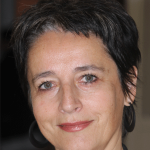 Elzbieta Senkus-Konefka, Assistant Professor at the Department of Oncology and Radiotherapy, Medical University of Gdansk, Poland, agrees. “Conducting academic clinical research in Central and Eastern Europe confronts us with problems that are often unknown to investigators in other parts of the world. The first is lack of time: because of a shortage of oncologists, we are already overwhelmed with work with ‘regular’ patients. There is also a dearth of support – for example, research nurses are practically unknown in Poland and, even where they do exist, the level of funding available for academic trials means that we can’t afford to pay them.”
Elzbieta Senkus-Konefka, Assistant Professor at the Department of Oncology and Radiotherapy, Medical University of Gdansk, Poland, agrees. “Conducting academic clinical research in Central and Eastern Europe confronts us with problems that are often unknown to investigators in other parts of the world. The first is lack of time: because of a shortage of oncologists, we are already overwhelmed with work with ‘regular’ patients. There is also a dearth of support – for example, research nurses are practically unknown in Poland and, even where they do exist, the level of funding available for academic trials means that we can’t afford to pay them.”
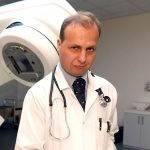 Professor Rafal Dziadziuszko is also at the Medical University of Gdansk, where he works on thoracic malignancies. He has been involved in trials from early on in his career. He sees a lack of the vision, infrastructure and finances needed to support academic trials in Central and Eastern Europe. “It is so much easier for the institutions to rely on existing network for commercially-sponsored studies than to establish one for academic trials, with huge amount of work for pharmacovigilance, monitoring, and reporting, As a result, the practical knowledge on initiation and running of a clinical trial in the region is limited, » he says.
Professor Rafal Dziadziuszko is also at the Medical University of Gdansk, where he works on thoracic malignancies. He has been involved in trials from early on in his career. He sees a lack of the vision, infrastructure and finances needed to support academic trials in Central and Eastern Europe. “It is so much easier for the institutions to rely on existing network for commercially-sponsored studies than to establish one for academic trials, with huge amount of work for pharmacovigilance, monitoring, and reporting, As a result, the practical knowledge on initiation and running of a clinical trial in the region is limited, » he says.
He is currently coordinating the EORTC Lung Cancer Group APPLE trial, which tries to answer the question of serial molecular profiling of plasma of patients with EGFR mutant lung cancer to switch the treatment upon emergence of the mechanism of resistance to EGFR inhibitors. “This trial serves as an excellent example of collaboration within the group, and we have recently received the EGAM 2019 award for the best recruiting trial. It also means that active involvement of researchers from CEE to lead the EORTC activity is possible.”
The authors of the EJC paper uncovered a moderate increase in international collaboration towards the EU, almost certainly driven by the Framework research funding programmes. However, there is still much to be done. One idea being tested by EORTC is greater local involvement to encourage research participation in CEE countries.
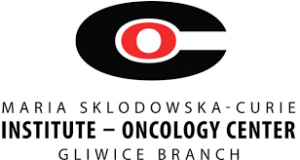
 EORTC supports clinical research in Poland by the establishment of the Polish EORTC Liaison Office (PL LO) which is located at Maria Sklodowska-Curie Memorial Cancer Centre (under supervision of Professor Piotr Rutkowski and coordinated by Izabella Jagiello at EORTC HQ). It was set up October 2011 and its main task is to enable a quick process of the opening of new clinical trials by EORTC in Poland and supporting Polish investigators in conducting clinical trials of EORTC. It provides a national contact point for Polish investigators, giving advice, practical information and assistance in all aspects of participation in EORTC clinical trials, mediating the cooperation and communication with EORTC HQ employees involved in a given study.
EORTC supports clinical research in Poland by the establishment of the Polish EORTC Liaison Office (PL LO) which is located at Maria Sklodowska-Curie Memorial Cancer Centre (under supervision of Professor Piotr Rutkowski and coordinated by Izabella Jagiello at EORTC HQ). It was set up October 2011 and its main task is to enable a quick process of the opening of new clinical trials by EORTC in Poland and supporting Polish investigators in conducting clinical trials of EORTC. It provides a national contact point for Polish investigators, giving advice, practical information and assistance in all aspects of participation in EORTC clinical trials, mediating the cooperation and communication with EORTC HQ employees involved in a given study.
“PL LO is a contact point for national cancer groups that would like to join an EORTC trial,” says Izabella Jagiello, Coordinator of EORTC Liaison Offices at EORTC HQ. “EORTC is open to discussions on projects that can be implemented through cooperation with national research groups. Taking in charge all applicable administrative and legal requirements, the office enables Polish investigators at national cancer centres and university hospitals who are interested in clinical research to join international investigator initiated studies that are advanced, multidisciplinary and of high quality.” “Liaison office is essential to enable EORTC to activate its high quality international cancer clinical studies in Poland,” says Anastassia Negrouk, Head of International Policy at EORTC. “Liaison officers not only largely release sites and EORTC HQ staff from administrative burden related to the activation of clinical research in Poland, but also promote academic research in the country.”
“I am convinced that the Liaison Office is responsible for stimulating the cooperation between EORTC and centres in Poland,” says Professor Piotr Rutkowski, officer of the Polish EORTC Liaison Office. “Joint efforts of academic representatives and lobbying from EORTC helped to change regulations in Polish law making them friendlier towards non-commercial trials.”
“Establishing the office also helped to optimize relationships with many Polish academic centres, showing all partners the value of participation in high-quality academic trials which increases the good visibility, quality of care and education of the membership centres.”
“There are language and regulatory problems that mean that we have to have people on the ground in these countries,” Golfinopoulos says. Cufer concurs. “EORTC has been very active in pushing for a new Clinical Trials Directive, but bureaucracy persists and academic research simply does not have the financial means and staff to support the level of administration that is still necessary. EORTC could do more by stimulating research engagement among young clinicians and scientists. They could, for example, support them to present research results at major conferences, and offer them help in writing papers for publication in major journals.”
 “EORTC encourages the participation of investigators from as many countries as possible, and this is the right way to go. However, a greater effort could be made in order to improve knowledge of trial design and conduct for researchers from Central and Eastern Europe, and to improve understanding among academic institutions of the benefits of clinical research, and even just the role of EORTC. Most of all, we need a change of mentality among the potential investigators who have no tradition of international co-operation, and who sometimes fear it,” says Senkus-Konefka.
“EORTC encourages the participation of investigators from as many countries as possible, and this is the right way to go. However, a greater effort could be made in order to improve knowledge of trial design and conduct for researchers from Central and Eastern Europe, and to improve understanding among academic institutions of the benefits of clinical research, and even just the role of EORTC. Most of all, we need a change of mentality among the potential investigators who have no tradition of international co-operation, and who sometimes fear it,” says Senkus-Konefka.
All agree that increased academic clinical trial activity would bring major advantages to patients in Central and Eastern European countries. “Access to novel therapies is often delayed for financial reasons; and there is a major disparity between Eastern and Western Europe in patient access to novel therapies by participating in clinical trials. This is something that should be addressed at EU level,” says Cufer.
“In Poland, for example, the first government agency dedicated to medical research is only just being set up; the first call for grant applications is expected later this year. Until now, regulatory bodies have tended to concentrate on commercial research and have little understanding of the requirements of academic clinical trials,” says Senkus-Konefka. “I hope this will change.”
“Reimbursement in the region has been slow, maybe two years behind Western European countries. Including new drugs in trials means that patients can get hold of them earlier, and we know that once trials get going in these countries, patients accrue well,” says Golfinopoulos.
It is clearly important that EORTC continue to push for progress. “But we cannot do it alone. We need to encourage and consolidate a Europe-wide understanding of the benefits of academic clinical research in oncology,” he concludes.
1Mapping cancer research across Central and Eastern Europe, the Russian Federation and Central Asia: Implications for future national cancer control planning.
Begum, Mursheda et al. European Journal of Cancer, Volume 104, 127 – 136
Related News
Meet the new EORTC Board
9 Jul 2024
We are pleased to announce the release of the EORTC 2023 Annual Report
17 Jun 2024
Dr Denis Lacombe, EORTC CEO, appointed stakeholder co-chair of ACT EU advisory group
24 May 2024
Clinical Trials Day 2024: a Q&A on pragmatic clinical trials
20 May 2024
EORTC/EMA workshop suggests an international way forward for treatment optimisation studies
8 May 2024
EORTC’s Participation at the ESTRO Congress 2024
29 Apr 2024
EORTC: Advancing research and treatment for rare cancers
29 Feb 2024
EORTC Fellowship Programme: celebrating more than 20 years of impactful collaboration
22 Feb 2024
Appointment of Malte Peters as EORTC Strategic Alliance Officer
9 Feb 2024
Unique series of workshops in partnership with the European Medicines Agency (EMA)
7 Feb 2024

